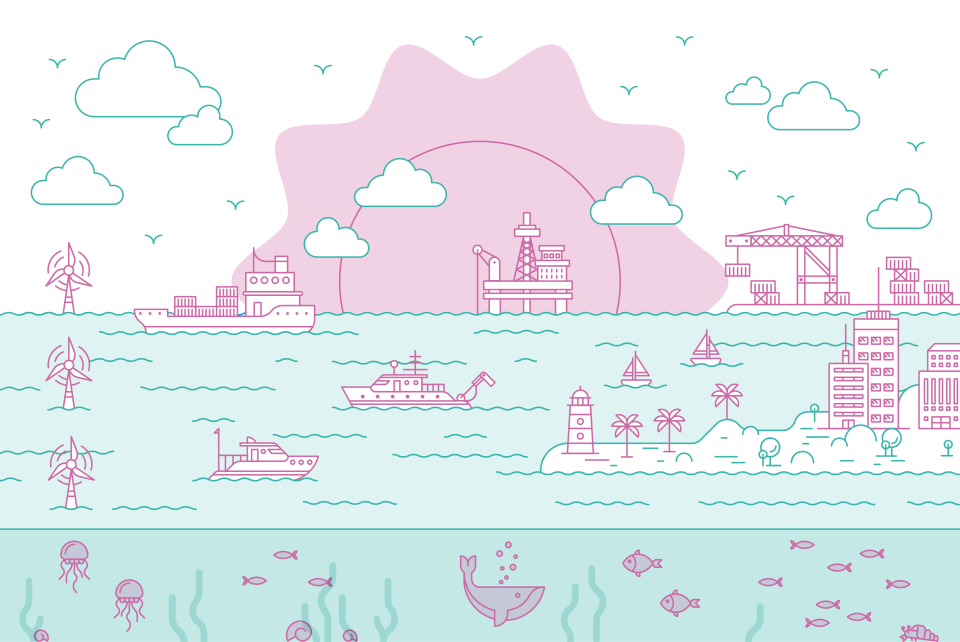Publié le 24 mars 2022

The ocean covers nearly 70% of Earth’s surface. Both above and below its surface, the ocean enables a plethora of activities: life for millions of marine species is sustained by the ocean, vessels use shipping routes that zigzag across the globe every day, aquaculture, energy and offshore infrastructure, fishing, tourism and recreation activities.
Credit: Mercator Ocean International, Copernicus Marine Service.
We see terms such as ‘climate change,’ ‘ocean acidification’ and the ‘ocean-climate nexus’ increasingly being mentioned in the media. Natural cycles, global warming, and other stressors like pollution and overexploitation resulting from/related to human activity impact the properties of the ocean, which are changing at an alarming rate.
Informed environmental policies and individual actions are vital if humanity is to preserve the ocean. To deliver on this commitment, stakeholders, and individuals must have a basic understanding of ocean science. For example, knowing how the ocean is monitored and what can be done to maintain it sustainably are just two questions stakeholders need to consider when making policy or conducting business.
Dive into our Ocean Explainers, making ocean science accessible to all!
Credit: Mercator Ocean International, Copernicus Marine Service.
In an effort to address the need for information, CMEMS has launched a new set of educational webpages called Ocean Explainers. Drawing on the experience of Mercator Ocean International, a centre for ocean expertise and modelling, the pages provide insights into four key topics:
- Why is the ocean important? From providing half of the world’s oxygen to helping regulate our climate and weather, the ocean is vital to the functioning of our planet. It is a central part of the Earth system and acts as a buffer against climate change. In this section, you can explore various aspects of the ocean, its role in the Earth system, how people rely on it, and how important it is for the Blue Economy.
- Phenomena and threats: From warming to acidification, the ocean is changing. Effects on marine life and the Earth system are potentially devastating. Sections on ‘the problem’, ‘the impact’ and ‘the solution’ convey the urgency of threats to the ocean whilst demonstrating the steps already being taken to address these challenges.
- Policies: To build a greener and more sustainable society, policies must be evidence-based. CMEMS supplies quality-assured reliable data from the past and in near-real-time. It can even provide forecasts for a wide range of industry sectors, from sustainable fisheries to renewable energy production and shipping. This section focuses on how CMEMS supports the EU and public policies.
- Operational oceanography: Operational oceanography encompasses a wide variety of activities aiming to provide estimates of physical and biogeochemical variables and properties for the past, present, and future ocean environment. This section presents high-level information on the science behind operational oceanography.
Read the rest of the article
over on the Copernicus Observer website